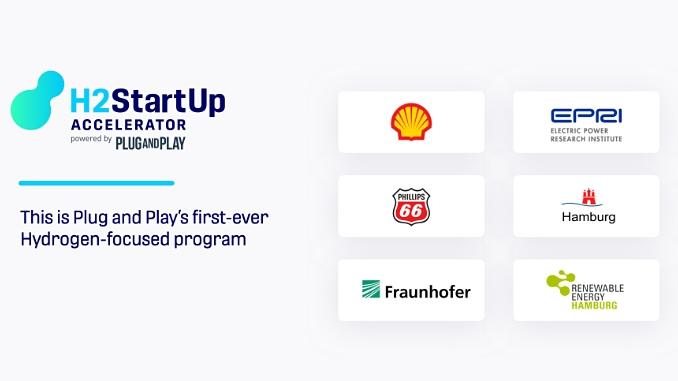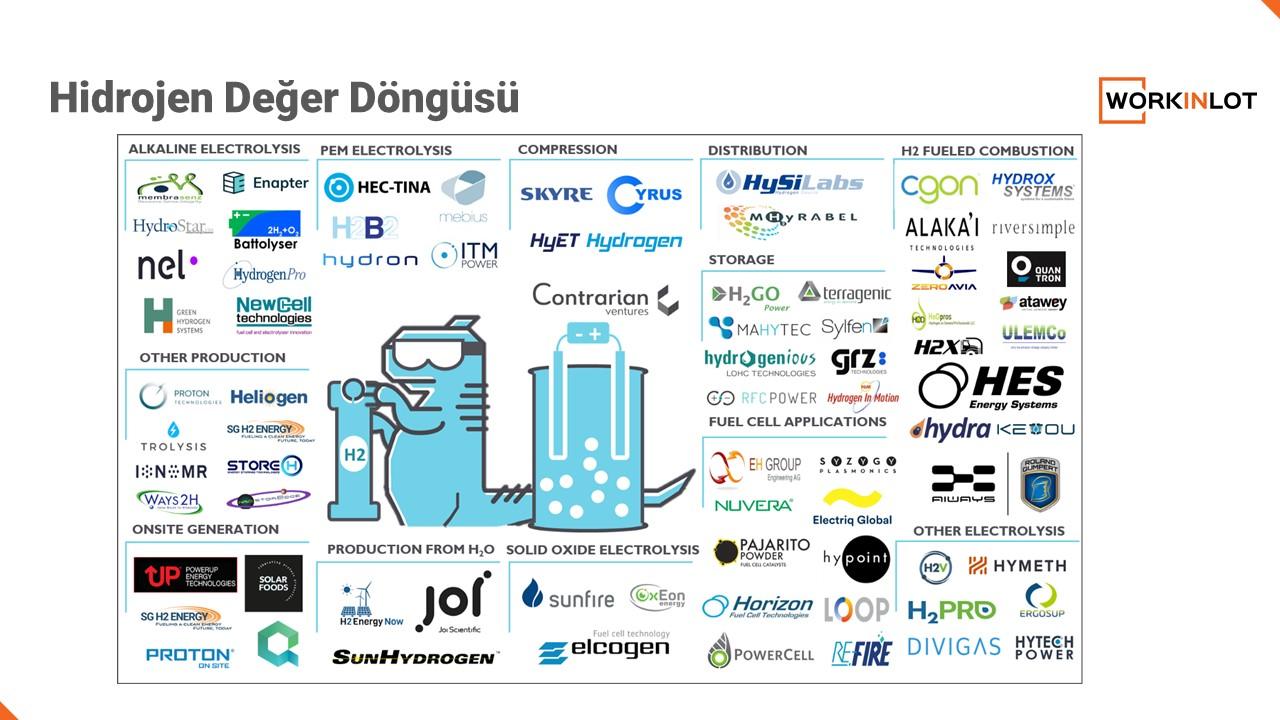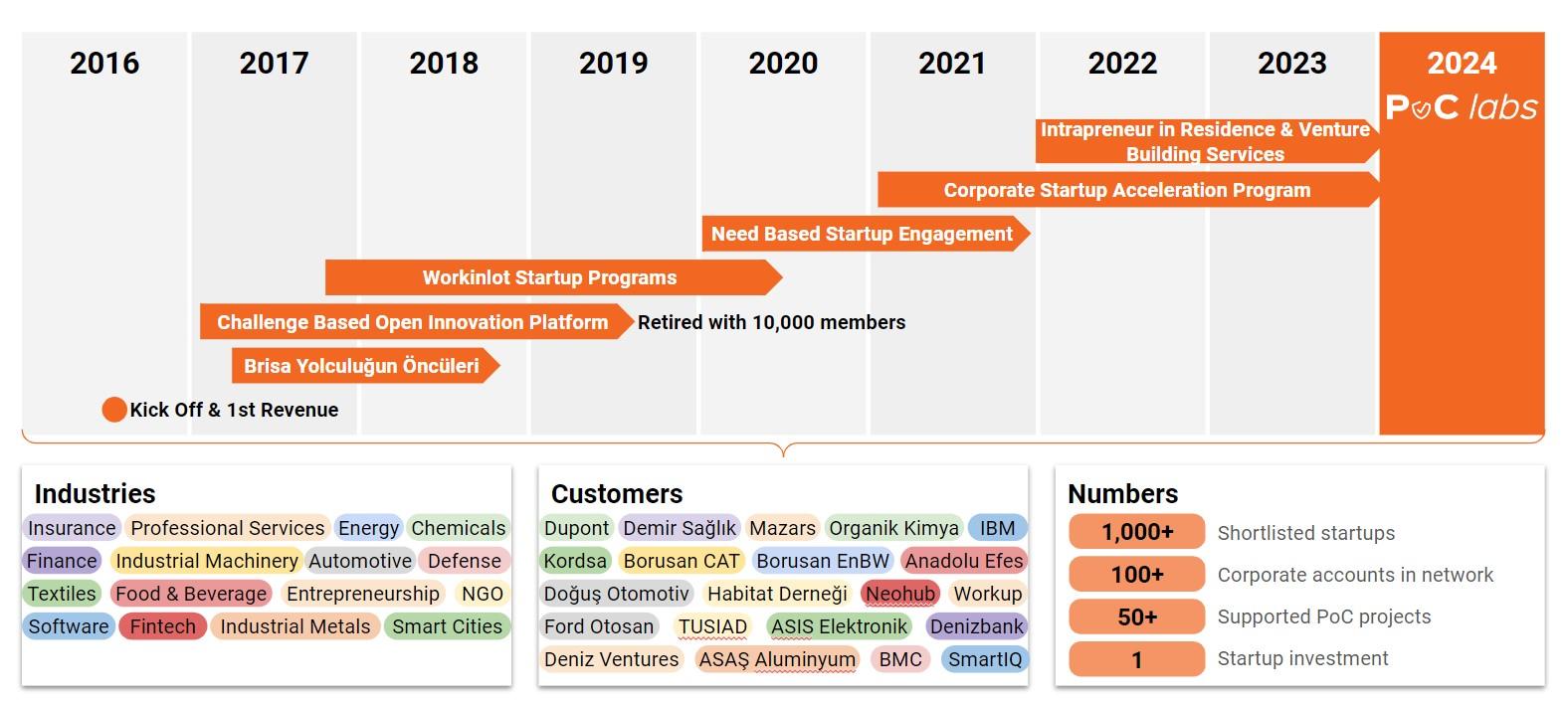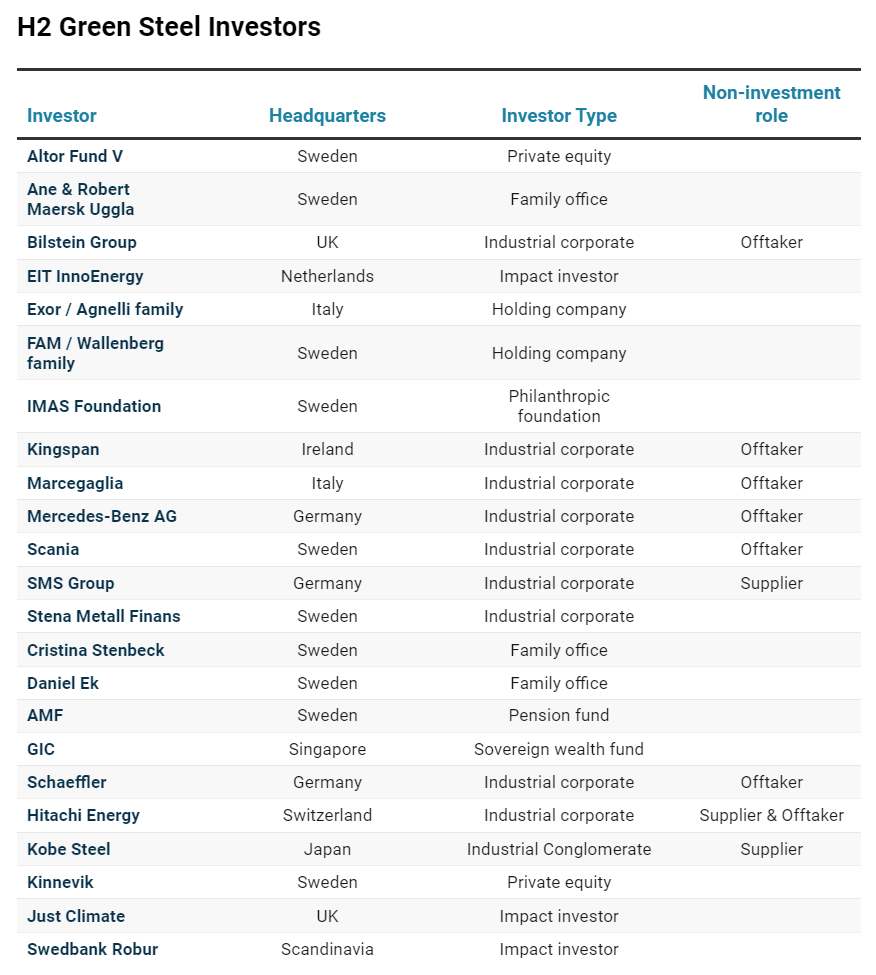
We help corporations monitor global startup trends to maintain a competitive innovation strategy.
Startups test new technologies, business models and even create new markets.
The sneak peek from our recent work on the hydrogen startups below reflects why we monitor these changes for our corporate clients.
- Hydrogen Startups
There has been a dramatic change in the hydrogen scene since 2020. A "new" momentum is underway for the hydrogen startups.
Companies have started supplementing costly Hydrogen R&D with startups, fund investments, and academic collaborations. (Turkish R&D Startups - Diamonds in the Rough)
Here are some examples from the Turkish market.
Zorlu Group already has various investments in the energy industry. Lentatek their latest spinoff works on hydrogen fuel cells. Turkish industry is the perfect market fit for hydrogen fuel cells because these cells perform best under inefficient chimney systems.
Inci Holding's corporate venture capital Vinci invested in the Singapore-based SunGreenH2 project in 2022. It makes perfect sense for a battery manufacturer to invest in a more efficient electrolysis solution.
Sabancı Ventures also invested in SunGreenH2 in 2023.
In 2024 Koc University launched its Hydrogen Technology Research Center KUHyTech and became a member of Hydrogen Europe Research.
Hydrogen research, which consisted solely of academic studies and patents before 2018, accelerated with the involvement of startups.
There are various reasons "why" for supporting hydrogen startups.
- Companies choose to share the innovation risk with startups instead of bearing the heavy R&D burden alone. This way, R&D budgets can be used more efficiently.
- Carbon taxes implemented to adapt to climate change and changing consumer expectations increase corporate and individual demand for hydrogen solutions.
If there's a 'why,' the 'how' is just a matter of time.
Let's explore the support systems paving the way for hydrogen startups to create new markets that will have a direct impact on our lives.
- Innovation Culture & Government support
Germany is home to 59 out of 160 hydrogen startups in Europe. There are very logical reasons why.
The first reason is cultural. German startups mostly consist of R&D focus. Turkiye has a very similar dynamic in terms of grants. (Turkish B2B Startup Grants and Incentives - Choosing the Right Ones)
The main difference from Turkish R&D teams is that they have a wide ecosystem where they can be commercialized. German ecosystem supports the work of R&D teams with the structured collaboration of government initiatives, the private sector, and academia.

Together with the innovation culture, the German state is also an active investor.
Hydrogen startups are inherently risky and require intensive R&D. The margin of error and the risk of innovation are high. This risk is unbearable for most private-sector companies. The first step, as expected the government provided financial support to the Hydrogen ecosystem with tax breaks and grants.
Besides financial initiatives, the German state helped create a funnel where startups, corporations, academicians, and the government itself would be natural partners, by launching ecosystem accelerators.
Ecosystem startup acceleration programs
The German government and regional authorities started several hydrogen startup acceleration programs in 2020.
The ecosystem accelerators help create a co-creation funnel where the state’s role is a mediator, engaging investors, startups, academia, and private companies.
In all the Hydrogen startup acceleration programs, at least one company is a stakeholder.
Companies from different industries, even focus on different aspects of the hydrogen production cycle.

Being a part of the ecosystem accelerator means getting exposed to new startups that might diversify the risks of R&D.
The industry-specific expertise of different companies is updated in the R&D-oriented startup acceleration programs.
It is now more structured and easy to access entrepreneurial talent and unique value propositions that will enable change in the hydrogen industry.
The expectation of most startups is, co-creation by leveraging industrial corporate expertise. (How PoCs Help Businesses Unlock Startup Potential)
- Financial and Technological feasibility

There are 5 main stages in the hydrogen value cycle. Production, compression, storage, distribution, and incineration. Therefore, we can come across startups with different focuses and deliverables. Some work on quantum computing to identify new innovative components in electrolysis, some work on designing smart pipe systems for smart cities, and some work on designing products or services as a result of the hydrogen combustion process.
Both technological and financial feasibility are being recalculated and updated in the context of hydrogen startups.
H2 Green Steel, a new initiative we analyzed in our research for the iron and steel sector, is a great example of how to invest in future markets. (H2 Green Steel has raised billions in 3 years: a case study of Industrial Project Finance)
H2 Green Steel charges its customers 25% to 30% more for steel. With the gradual increase in carbon taxation in advanced markets from 2026 to 2030, the new carbon pricing is making H2 Green more competitive.(Corporations and Startups - The Future of Iron and Steel Industry)
- Conclusion:
A majority of hydrogen startups originate from research and development (R&D).
Collaborating with external stakeholders for R&D enables companies to integrate into the ecosystem model while mitigating financial risk. (Workinlot Ecosystem Design)
Although the number of hydrogen startups increased after 2020, the number is still low.

Hydrogen startups are yet in the concept validation and proper feasibility stage. Companies are testing the new market with their proof of concept processes.
We design and execute the startup validation processes (PoC) for corporate clients. (Starting and Iterating: Corporate Open Innovation Design)
Through collaborative efforts, most companies we've worked with have developed unique open innovation strategies and established innovation teams.
This shared experience has enabled them to launch corporate venture capital funds, open innovation platforms, and venture builder initiatives.
If you're ready to embark on a similar journey, let's connect.

